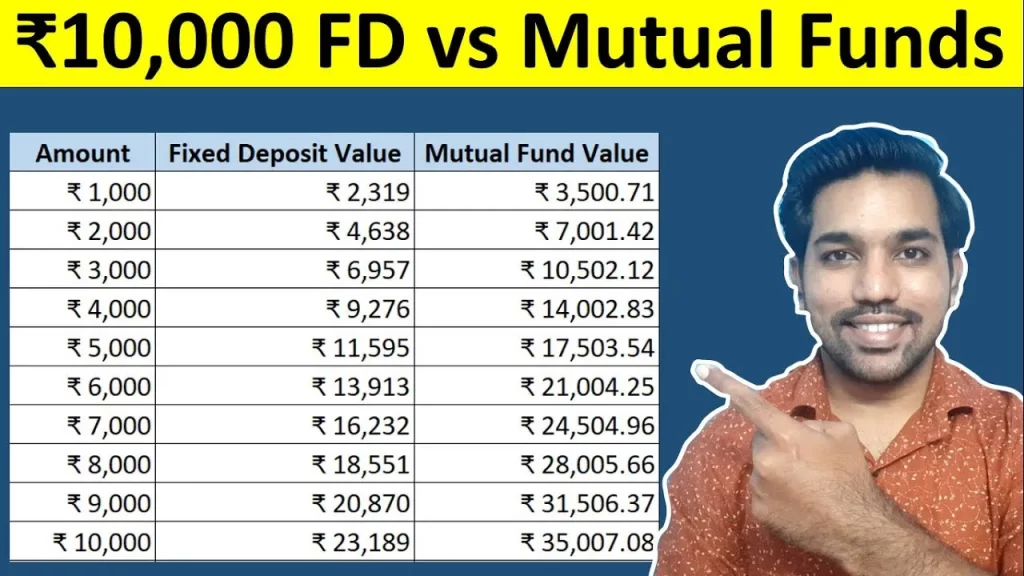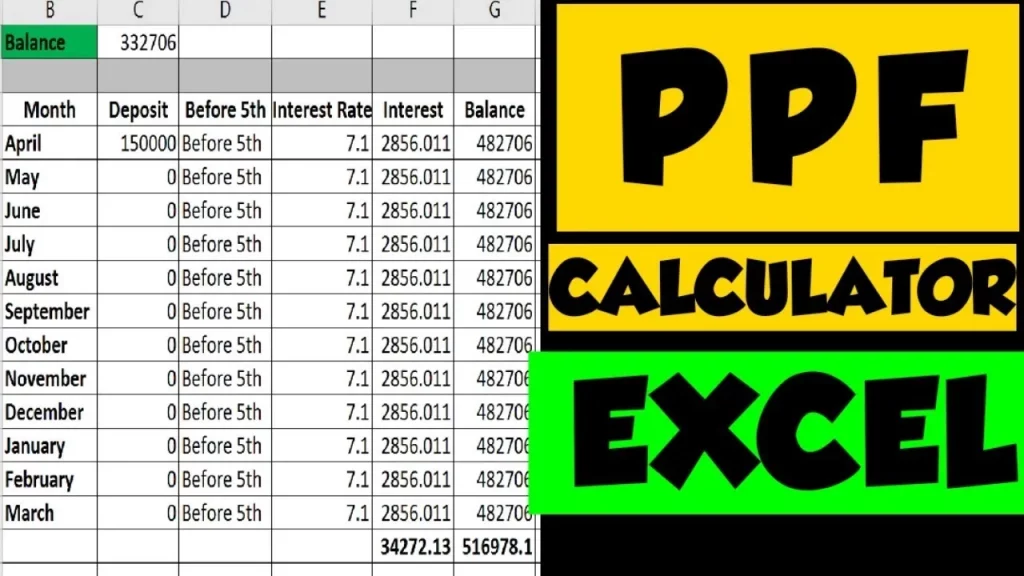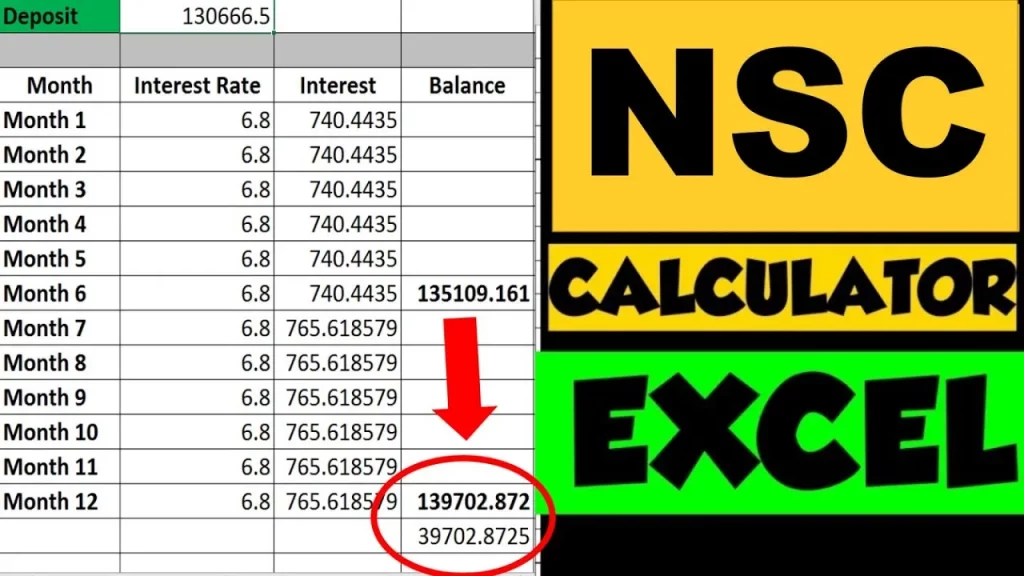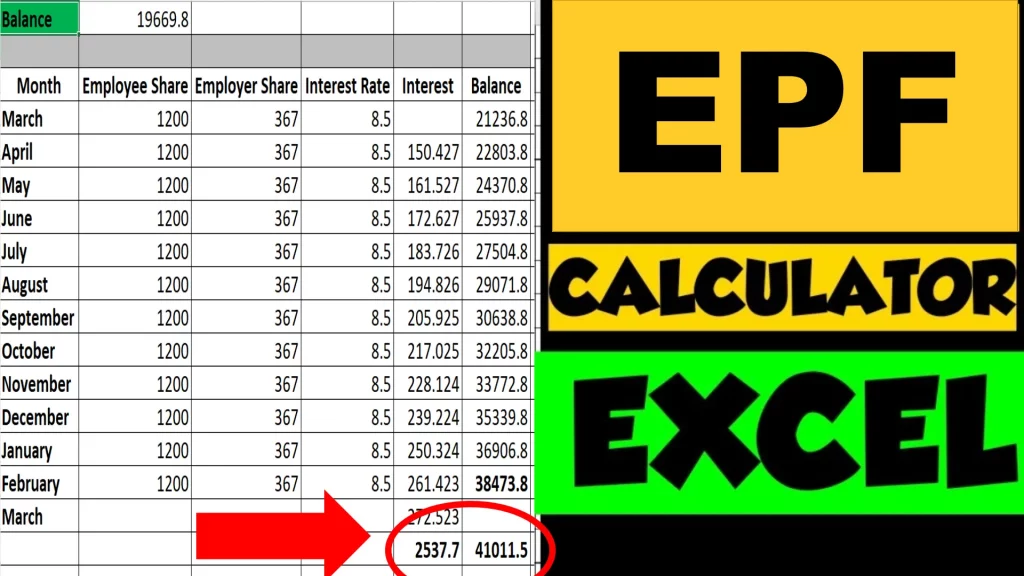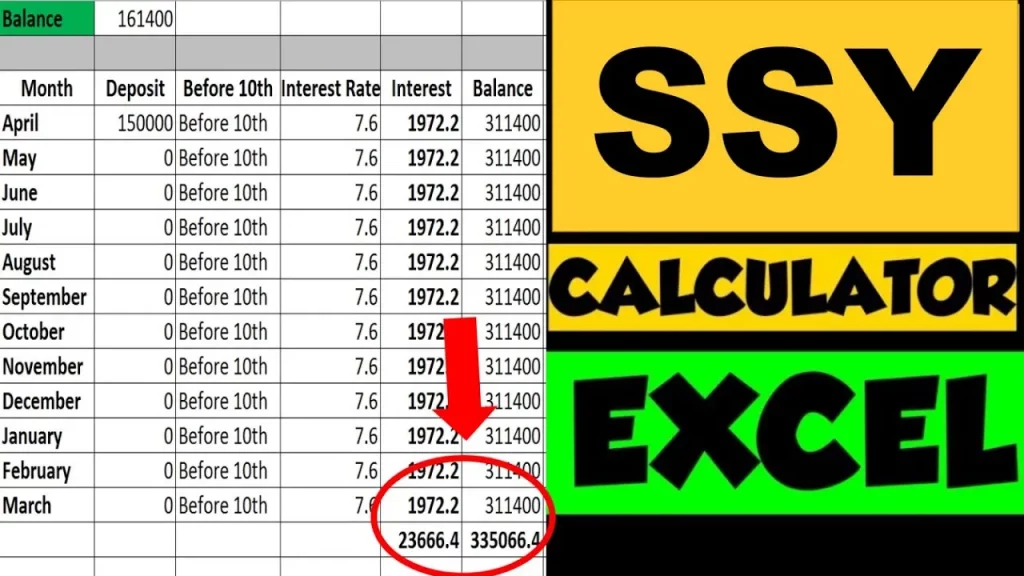FD vs Mutual Funds Which is better? is one of the questions that everyone comes across while travelling their journey of savings and investments. FD or Fixed Deposits can be used for short term goals of 6 months to 2 years which provides the benefit of capital protection while giving some interest amount. On other hand, Mutual Funds are used to achieve the goal of wealth growth or wealth accumulation over long period of time with at least 5 years of tenure.
So it should depend on your personal financial goals to invest in one of these schemes. In this article we will see the returns calculations in FD and Mutual Funds with the help of examples and which is better.
- Rs. 10,000 FD vs Mutual Funds Returns Calculations Video
- FD or Fixed Deposits Features and Benefits
- Mutual Funds Features and Benefits
- Which is better mutual fund or FD?
- Which is better FD or SIP?
- How to Start SIP in Mutual Fund Online in SBI
- Conclusion
- Frequently Asked Questions
- SHOW your Support!
- Income Tax Calculator App – FinCalC
Watch below video to understand the returns on Rs. 10,000 FD vs Mutual Funds and which is better
Rs. 10,000 FD vs Mutual Funds Returns Calculations Video

Watch more Videos on YouTube Channel
As seen above, in 10 years – FD would have given Rs. 23,189 as maturity amount and sensex mutual fund would have given Rs. 35,007 as maturity amount on Rs. 10,000 as lumpsum investment.
FD or Fixed Deposits Features and Benefits
Let us understand some of the features and benefits of FD (Fixed Deposit):
- FD or Fixed Deposit is also known as Time Deposit since your amount is invested for fixed tenure as selected by you
- FD can be booked in any nationalized or private banks or in post office in India
- The main goal of booking FD should be to use the invested amount in some future buying
- Fixed Deposit keeps your invested amount safe for fixed tenure and provides you interest amount on same
- You can use the FD Calculator Online to know how much interest you can get in FD based on the tenure of investment
- FD also helps in income tax saving. You can claim the invested amount under Section 80C if you invest in 5 years Fixed Deposits
- There are 2 types of FD – Cumulative FD – helps you accumulate interest amounts that you gain every quarter. Non cumulative FD – you get regular payouts may be quarterly or half yearly
- Cumulative FD can help you get better returns since you get compounding after every quarter when you receive interest amount.
- FD interest is calculated on quarterly basis and the interest is added to your balance so you receive more interest amount in upcoming quarters
- So FD or Fixed Deposits are better if you consider short term goals with your principal amount protected from any risk.
- You can easily book Fixed deposit in post office or nationalized bank offline or online
WATCH: FD Interest Calculation of Rs. 10,000 from 7 days to 10 years
Mutual Funds Features and Benefits
Let us now understand some of the features and benefits of Mutual Funds:
- Mutual Funds helps us to invest in multiple stocks of different companies
- Every mutual fund is assigned a fund manager that is responsible to select stocks for the mutual fund portfolio and maximize gains on your investments
- You can either invest lumpsum amount or every month with the help of SIP (Systematic Investment Plan) just like Recurring Deposits
- Lumpsum investments are risky to some extent if you plan to redeem your mutual fund units in short term, as there is a tendency that you might invest in mutual funds when market is at peak
- It’s better to invest via SIP to achieve your long term goals of at least 5 to 7 years time horizon
- Mutual funds provide returns based on the performance of the companies present in the underlying portfolio
- If you take any of the 5 years or 7 years slot in past, mutual funds have given better returns compared to fixed deposits
- This better returns comes with a risk associated with mutual funds, as they are not completely safe, but over long term, we have seen that markets provide good returns, at least better than other fixed income instruments
Watch below video to know how much returns you can get with Rs. 2000 monthly investments (SIP) in mutual fund
Rs. 2000 SIP Returns Calculations Video

Which is better mutual fund or FD?
FD vs Mutual Fund Which is better, depends on your goals. With every investment you start, you must assign a goal to that investment.
When to choose FD or Fixed Deposit?
If your goal is to buy a new smartphone with latest technology after 6 months and you already have the required amount, you can save that amount in FD (Fixed Deposit) for 6 months and buy the new smartphone after 6 months, where you will get back your saved amount along with some interest amount. If for the same goal you invest in mutual fund for 6 months, there is a chance that your principal amount might get reduced after 6 months due to volatility in markets over short term.
When to choose Mutual Funds?
If your goal is to buy a new car or house after 5 years or 7 years, you can invest in mutual fund as lump sum investment with amount you can afford to invest for now. And you can also start SIP for next 5 years or 7 years that can help you to achieve your goal with better returns.
You can also plan retirement while investing in mutual funds over long term.
Below is the FD vs Mutual Fund comparison of returns on various investments for last 10 years:

Clearly, Mutual fund has given more returns for last 10 years due to long time period.
Which is better FD or SIP?
FD or fixed deposit is better to achieve your short term goals of 6 months to 2 years, such as buying a new smartphone, saving for small events, etc. FD does not have risk associated to your principal amount and you get back additional interest after the tenure.
SIP or Systematic investment plan is a way to invest in mutual funds, which is better when you goal is at least 5 years or 7 years, such as buying a new car or house, planning for child education or marriage, etc.
So it depends on your financial goals which is better for you and you must choose accordingly.
ALSO READ: Rs. 1000 SIP returns for 15 years in mutual fund
How to Start SIP in Mutual Fund Online in SBI
You can easily start SIP online in SBI mutual fund, below is the step by step video to start SIP online:

Conclusion
So we have seen the differences in FD and mutual funds and which is better. It is always important that you list down your financial goals and map the investments with them to achieve them without any stress.
If your goals are short term with 6 months to 2 years, start FD or Fixed deposits and if your goal is for at least 5 years to 7 years or more long term, than invest in mutual funds via lumpsum or SIP.
Some more Reading:
- SIP vs Lumpsum investing in Mutual Funds Which is Better?
- Income Tax on SIP Redemption
- How to Calculate Income Tax on Salary
Frequently Asked Questions
What is better investment than FD?
Mutual funds can provide you better returns compared to FD if your goal is long term with at least 5 to 7 years time period. For short term goals of 6 months to 2 years, it is better to invest in FD (Fixed Deposits) or RD (recurring Deposits)
What is the disadvantage of FD?
FD provides low returns compared to mutual funds when investment time period is 5 years or more. Also FD interest is taxable and TDS may be deducted during FD maturity, these are some disadvantages of FD.
Are mutual funds safer than FD?
Mutual funds have some risk associated with them. For short term of 6 months to 2 years, mutual funds are very risky compared to FD. But we have seen historically for any time period of 5 years or more, mutual fund returns tend to increase based on the mutual fund selected and are less risky over ling term. On other hand, FDs are not risky for any time period.
How much is 5000 for 5 years in SIP SBI?
Based on 12% rate of returns assumption, Rs. 5000 per month SIP in SBI for 5 years might five maturity amount = Rs. 4,12,432. You can check the SIP calculator to know SIP returns.
Save Home Loan Interest Amount!
Use Home Loan Excel Calculator that will help you to Save Interest Amount on Home Loan EMI.
Click below button to download Home Loan EMI and Prepayment Calculator in Excel:
Watch how Home Loan Calculator in Excel Works
Income Tax Calculator App – FinCalC
For Income Tax Calculation on your mobile device, you can Download my Android App “FinCalC” which I have developed for you to make your income tax calculation easy.
What you can do with this mobile App?
- Calculate Income Tax for FY 2025-26 and previous FY 2024-25
- Enter estimated Investments to check income tax with Old and New Tax Regime
- Save income tax details and track regularly
- Know how much to invest more to save income tax
- More calculators including PPF, SIP returns, Savings account interest and lot more
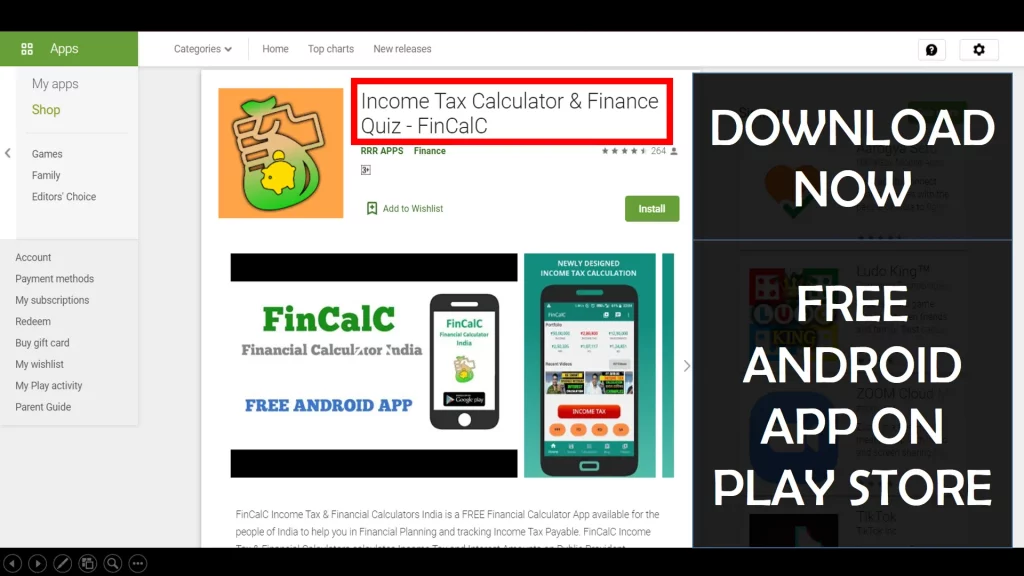
Use Popular Calculators:
- Income Tax Calculator
- Home Loan EMI Calculator
- SIP Calculator
- PPF Calculator
- HRA Calculator
- Step up SIP Calculator
- Savings Account Interest Calculator
- Lump sum Calculator
- FD Calculator
- RD Calculator
- Car Loan EMI Calculator
- Bike Loan EMI Calculator
- Sukanya Samriddhi Calculator
- Provident Fund Calculator
- Senior Citizen Savings Calculator
- NSC Calculator
- Monthly Income Scheme Calculator
- Mahila Samman Savings Calculator
- Systematic Withdrawal Calculator
- CAGR Calculator
I’d love to hear from you if you have any queries about Personal Finance and Money Management.
JOIN Telegram Group and stay updated with latest Personal Finance News and Topics.
Download our Free Android App – FinCalC to Calculate Income Tax and Interest on various small Saving Schemes in India including PPF, NSC, SIP and lot more.
Follow the Blog and Subscribe to YouTube Channel to stay updated about Personal Finance and Money Management topics.

